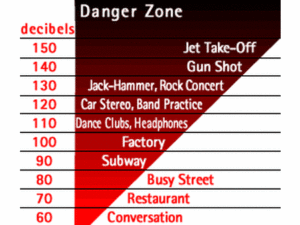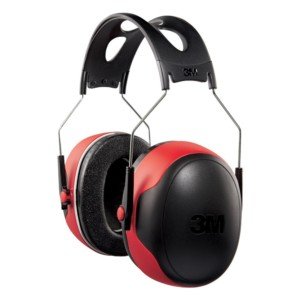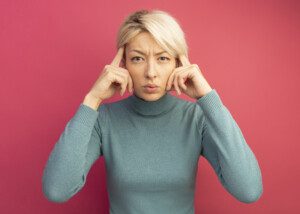
So just how effective IS protection (ear plugs, muffs) against hearing loss to loud noise?
People need to take seriously the idea of protecting their ears from hearing loss as vigilantly as they protect other functions of their body from damage.
“One of the easiest ways to reduce your risk for permanent hearing damage is to wear hearing protection at loud events and locations,” says Rivka Strom, AuD, CCC-A, chief audiologist at Central Hearing LLC in NY.
“While the intensity and duration of the sound is ultimately going to determine the amount of damage, the type of hearing protection you use can greatly reduce this risk!” explains Strom.
One in 10 Americans have enough hearing loss to disrupt their ability to decipher normal speech, and this statistic is not taken only from senior citizens.
Young adults are included.
Hearing loss is far more prevalent than most people realize, and one reason is because the symptoms of hearing loss are not like symptoms of other medical conditions.
Do you know the eight symptoms of hearing loss?
- “Honey, what was that?”
- “Come again?”
- “What?”
- “Talk louder; there’s too much noise in the room.”
- “Why do men mumble when they talk?”
- “She runs her words together; I can’t understand her.”
- “Kids these days don’t know how to speak clearly.”
- “Today’s TV shows have such poor sound quality.”
Denial is huge in the world of hearing loss.
Though aging is the most common cause of hearing loss, noise-induced loss is a very close second leading cause.
But hearing loss due to loud noise is preventable.
Hearing Protection: How Effective It Really Is
“Starting with traditional disposable earplugs [available at retailers], how much benefit you receive will depend on how well they are placed in the ear.
“Poorly secured or shallow insertion of earplugs may only give you 15 dB of noise reduction.
“A well-placed earplug that is sitting deep in the ear can provide up to 33 dB reduction.
“Earmuffs or over-the-ear ear protection may provide up to 25 dB noise reduction.” Some hunting supply sections may sell heavier-duty muffs that can go up to 29 dB.

“Custom ear protection, that is shaped exactly to your ear, may also provide up to 30 dB noise reduction,” continues Strom.
“For musicians who are worried about dangerous noise exposure, there are special filters that can be put in so they are able to hear the music clearly but at less damaging levels.”
What happens inside the ear when noise gets too loud?
The hair or nerve cells inside the ear become damaged and die.
New nerve cells to replace them do NOT exist. These nerve cells are not like skin cells that are continuously replenishing themselves.
It’s a set amount of nerve cells. If you lose any, you’re not getting them back.
You’ll never regret using ear protection in loud environments to protect yourself from hearing loss.










































